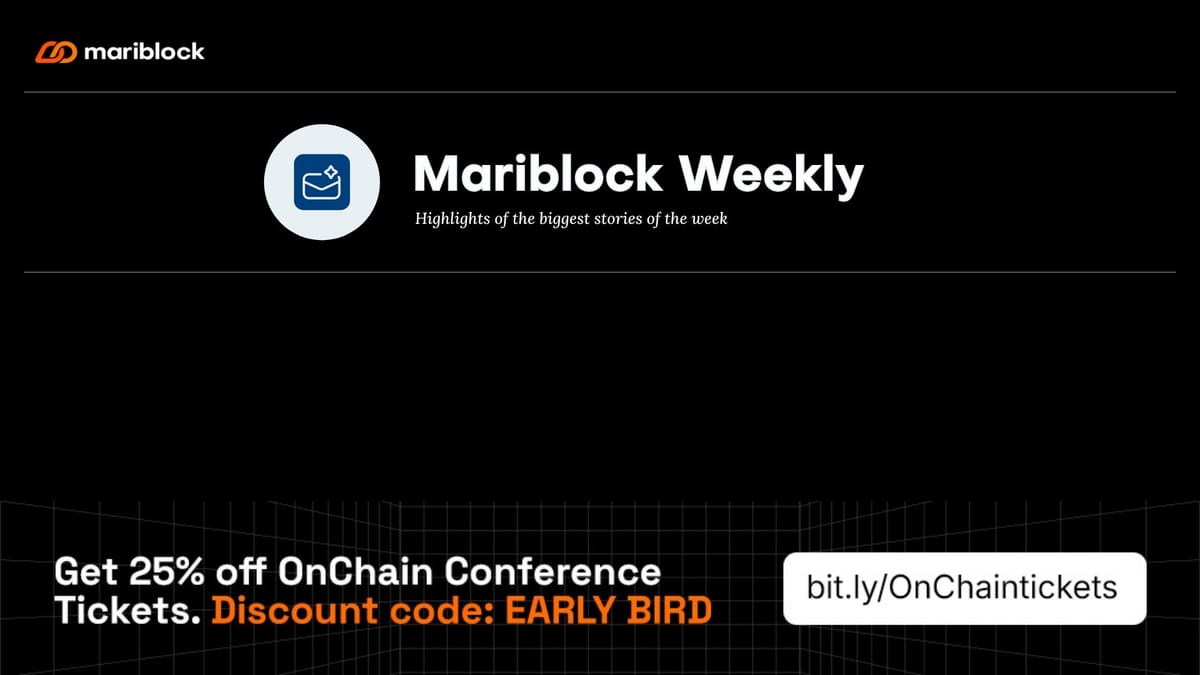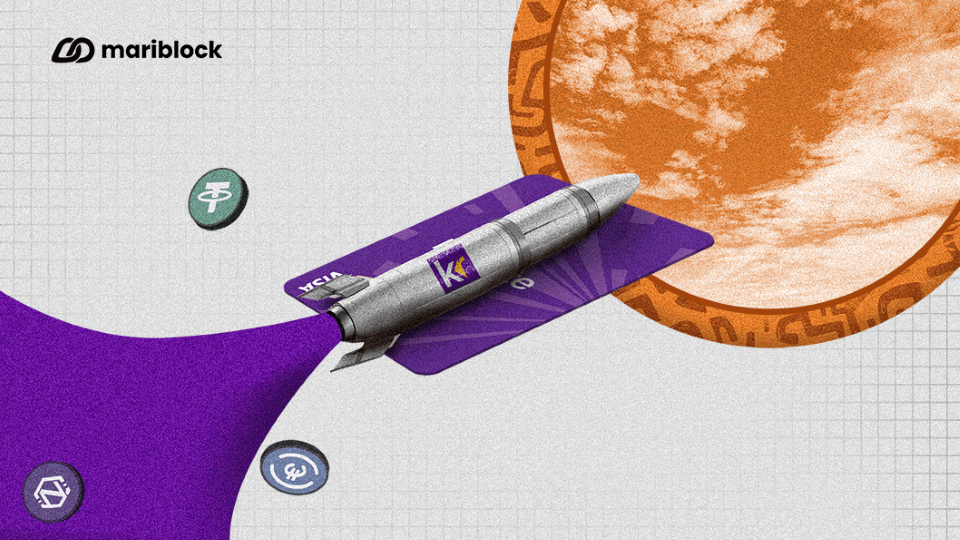🟠 New law: Crypto taxes and penalties arrive in Nigeria in 2026
Plus: 🌍 Coinbase-backed Onboard 3.0 attracts 10k users two months after launch; 🇳🇬 Kredete raises $22 million to fuel expansion efforts

Here’s what made the news last week:
- 🇳🇬 Nigeria set to tax individual crypto transactions and exchanges in 2026
- 🌍 Kredete raises $22 million to fuel expansion efforts
- 🌍 Coinbase-backed Onboard 3.0 attracts 10k users two months after launch
📌 Don’t miss:
- We’re going live on LinkedIn today at 5 p.m. WAT with tax experts to unpack Nigeria’s new tax act — with a focus on what it means for crypto. RSVP here.
- We’re deep in preparations for OnChain Conference 2025 — our flagship gathering of builders, regulators, and institutions in Lagos this November. Tickets are now available, and sponsorships are open — secure your spot at Africa’s leading blockchain event.
Let’s dive in!
Nigeria set to tax individual crypto transactions and exchanges in 2026

Topline: Starting January 2026, individuals in Nigeria will be required to pay income tax on profits from cryptocurrency transactions. Exchanges registered in the country must report user activity or face stiff penalties. (Details)
How will the taxes to be remitted? The new law mandates that virtual asset service providers (VASPs) report detailed transaction information to tax authorities, including:
- Transaction descriptions and dates
- Types and values of assets involved
- Details of any virtual asset sales
- Personal information of people involved in transactions
VASPs that fail to comply face administrative penalties of ₦10 million in the first month, plus ₦1 million for every subsequent month of non-compliance.
- Even worse, they risk license suspension or permanent revocation by the Nigerian Securities and Exchange Commission (SEC).
Of note: We’re going live on LinkedIn today at 5 p.m. WAT with tax experts — don’t miss the breakdown of Nigeria’s new crypto tax act. RSVP here.
Kredete raises $22 million to fuel expansion efforts

Topline: Stablecoin-powered fintech Kredete has secured $22 million in Series A funding, bringing its total raised to $24.75 million since last year. AfricInvest led the round. Partech and Polymorphic Capital also participated. (Details)
Dive deeper: Kredete launched in 2023 as a stablecoin-powered remittance platform to help African immigrants build creditworthiness in their countries of residence.
Here’s how it works: Kredete tracks users’ financial activity through its remittance patterns and uses this data to build credit scores.
- Since launch, Kredete reports that it has processed $500 million in remittances for more than 700,000 monthly users.
- Kredete also claims that it helped raise users’ credit scores by an average of 58 points through the platform.
Zoom out: According to CV VC, Kredete’s initial $2.25 million raise last year placed them among the top firms that secured nearly half of Africa’s total blockchain funding in 2024.
- With this latest round, they’ve not only surpassed that achievement but also become the African blockchain firm with the highest funding raised so far this year.
Coinbase-backed Onboard 3.0 attracts 10k users two months after launch

Topline: Onboard, the Coinbase-backed cryptocurrency startup, has attracted 10,000 new users just two months after launching version three of its product.
- CEO Yele Bademosi told Mariblock that the company now plans to expand into Indonesia, integrate Apple Pay and Google Pay for tap-to-pay functionality, and roll out physical cards. (Details)
Quick facts: Onboard launched version 3.0 in July, introducing several upgrades — most notably, virtual USD accounts that let users receive payments directly.
- Virtual USD accounts are an emerging product trend among crypto firms.
- Also in July, Minipay, the Opera-incubated wallet, partnered with stablecoin payments company Noah to offer similar services.
The concept isn’t new, though. More than a decade ago, companies like Payoneer gave gig workers virtual accounts in multiple currencies (USD, GBP, EUR, JPY, etc.), enabling clients to pay them as if they lived in those countries.
- Workers could then withdraw via Payoneer cards, wire transfers or local bank payouts — shifting the burden of cross-border payments away from clients.
- Crypto companies are now taking the model further by enabling payouts in stablecoins, often powered by infrastructure from Bridge, which Stripe acquired earlier in 2025.
CEO Yele Bademosi told Mariblock:
“Onboard 3 is the final step in bringing traditional users on-chain. Instead of asking people to come on-chain, why not meet them where they already are?”
Dive deeper: According to Bademosi, Onboard 3.0 was specifically designed to make crypto accessible to people who are not crypto-native.
- This philosophy resulted in a platform that integrates multiple features, allowing users to manage cryptocurrencies and fiat currencies within a single app.
- Onboard operates with licenses in multiple jurisdictions — a virtual assets service provider in Europe and a money services business in Canada.
📢 The Mariblock OnChain conference is coming!

Mariblock is launching the OnChain Conference, a new flagship event focused on Africa’s blockchain future.
- The inaugural edition will take place on November 5-6, 2025, at the Jewel Aeida in Lagos, in partnership with Busha.
This year’s theme, “The Next Wave,” will explore stablecoins, payments, FX, tokenized real-world assets, regulation, blockchain use cases, and the continent’s growing talent pipeline.
- Register here: bit.ly/OnChaintickets
Catch up

🇳🇬 Bitcoin mining set to power Ethiopia’s energy expansion (Mariblock)
🌍 Circle backs $20m African Blockchain Fund as stablecoin ‘Utility Wave’ grows (Launch Base Africa)
🇳🇬 SARS coming for 6 million people (My Broadband)
That’s all for this week!
If you found this helpful, please consider sharing it with a friend or colleague or forwarding it online.
Till next week,
Ogechi.



